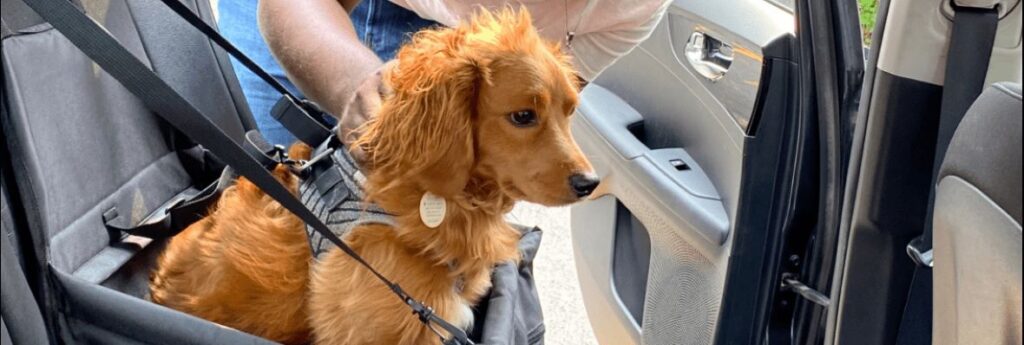As many Canadians continue packing their vehicles for a summer road trip, Allstate Insurance Company of Canada has launched a campaign to remind them how to safely travel with their precious furry cargo. In fact, a new survey commissioned by the insurance company points to potential safety issues for all vehicle occupants.
With nearly half (47%) of Canadian respondents claiming to leave their pets unrestrained, 20% even say they let their furry friends ride on their laps while they drive. Like other passengers, pets can be taken by surprise when the driver suddenly brakes, swerves or performs other emergency manoeuvres, which can put them at risk for serious injury. They can also injure themselves and other passengers in a collision, not to mention becoming a hazard to first responders trying to help those at a crash scene.
“Many Canadians affectionately refer to themselves as pet parents, which is an example of how much they care about the furry members of the family. But what we are seeing in this survey tells a bit of a different story and illustrates how much room for improvement there is to keep all vehicle occupants – both two-and four-legged – safe from possible harm,” says Gene Myles, Agency Manager at Allstate.
He adds, “Ensuring every person buckles their seatbelt is an incredibly important safety measure in a vehicle, and taking extra precautions for our beloved pets should be an extension of that commitment to safety.”
Frequent furry passengers
The survey found that 35% of Canadians have a cat, 32% a dog and 11% have other pets at home. Interestingly, 10%, 11% and 5% of those respondents, respectively, made adoptions in the past three years during the COVID-19 pandemic and may not be aware of dangers of driving with their pets.
A quarter of cat and dog parents (25%) said they travel with a pet in a moving vehicle at least once per week. On the other hand, 22% of respondents who have a cat or a dog travel with their pet in a car a couple times per month while 35% never bring their animal in their car.
The survey (conducted by Leger) suggests that a large majority of pets travel by car, demonstrating the need to keep pets safe.
Myles offers the following pieces of advice when travelling by car with pets this summer:
• Secure a pet in the proper carrier or pet restraints: Keep him or her in a secure, well-ventilated carrier to keep both the animal and passengers safe. For larger dogs or pets that cannot fit in carriers, consider using specially designed pet seat belts or harnesses.
• Secure the carrier or harness properly: Ensure that the carrier is securely fastened or a pet harness is connected to the vehicle’s seat belt system. This safety measure can also help prevent the pet from moving or falling during sudden stops.
• Gradually acclimate pets to car travel: If a pet is not accustomed to car travel, to a carrier, or harness, start with short trips and gradually increase the duration to help them get used to the experience.
• Healthy travel: Make sure that any pet is healthy enough to travel and up to date on necessary vaccines. Bring along any documentation or paperwork for proof of vaccination, depending on the destination.
• And, never leave a pet alone in a hot, parked car. Temperatures inside the vehicle can rise quickly, which can put an animal’s health in serious risk.

